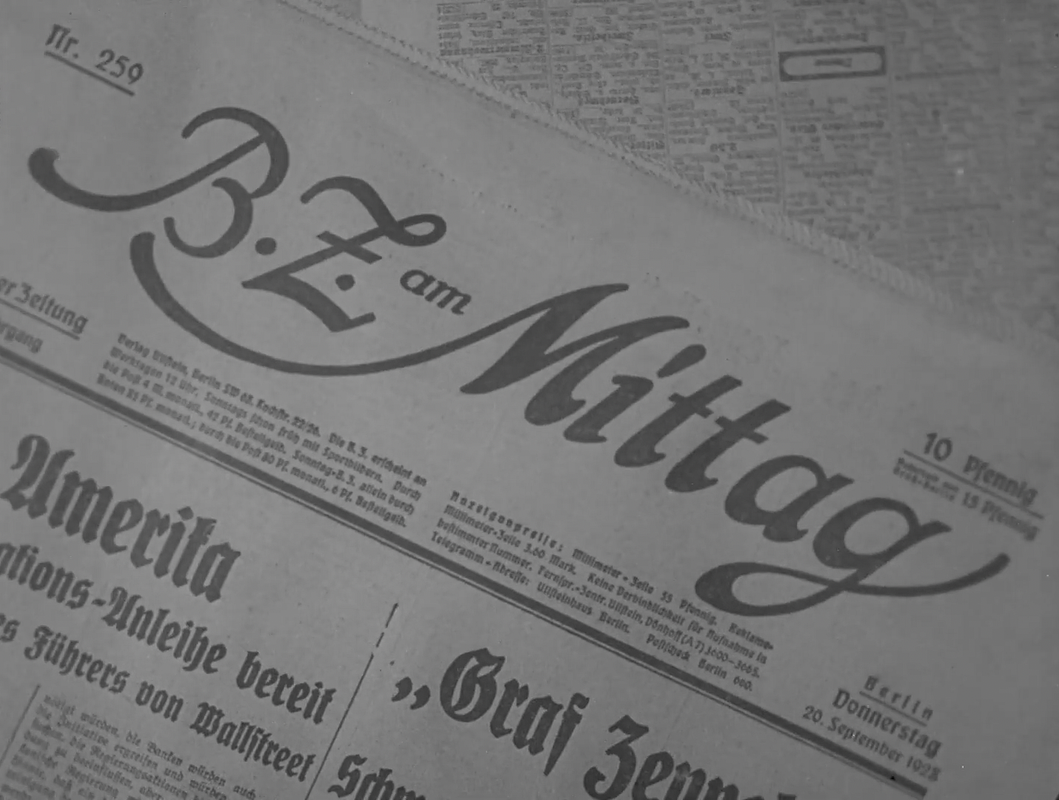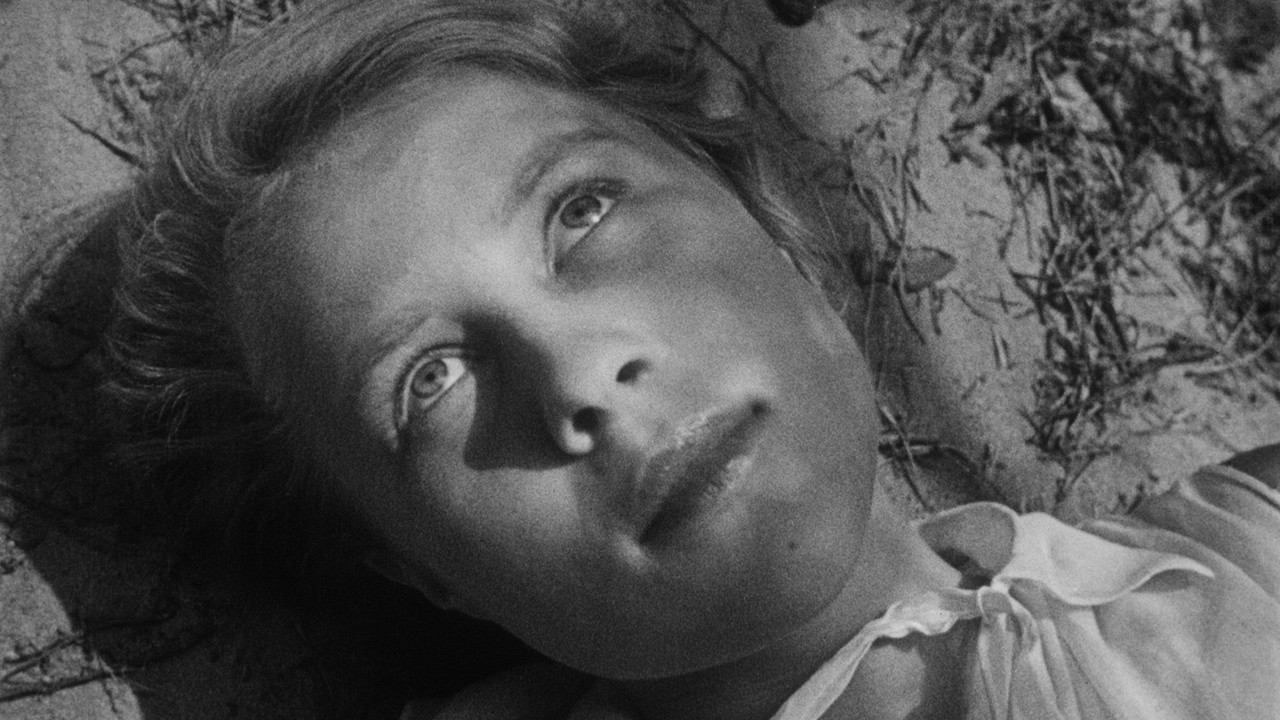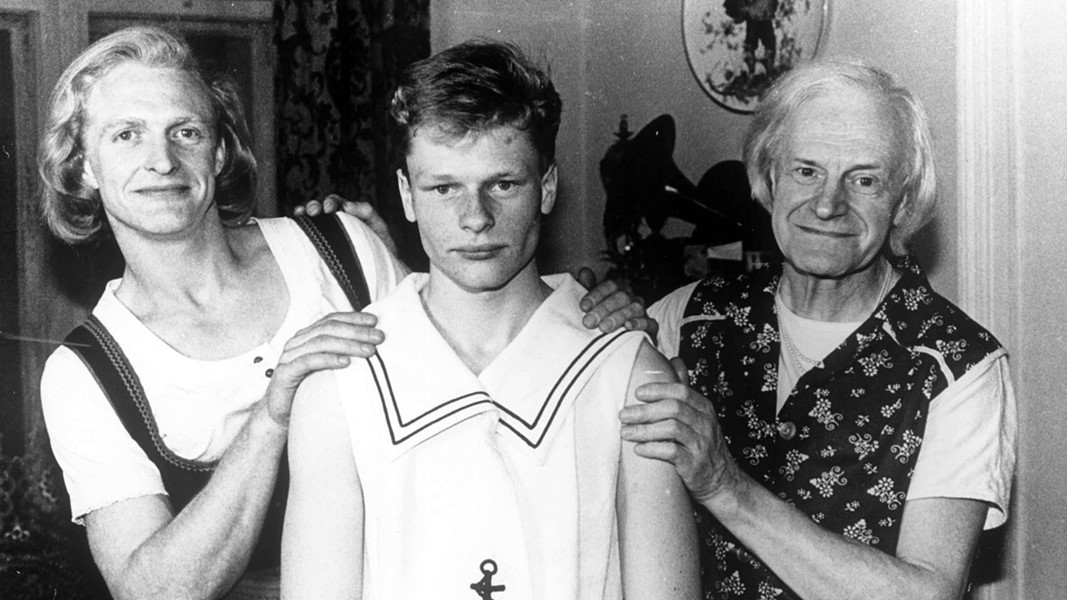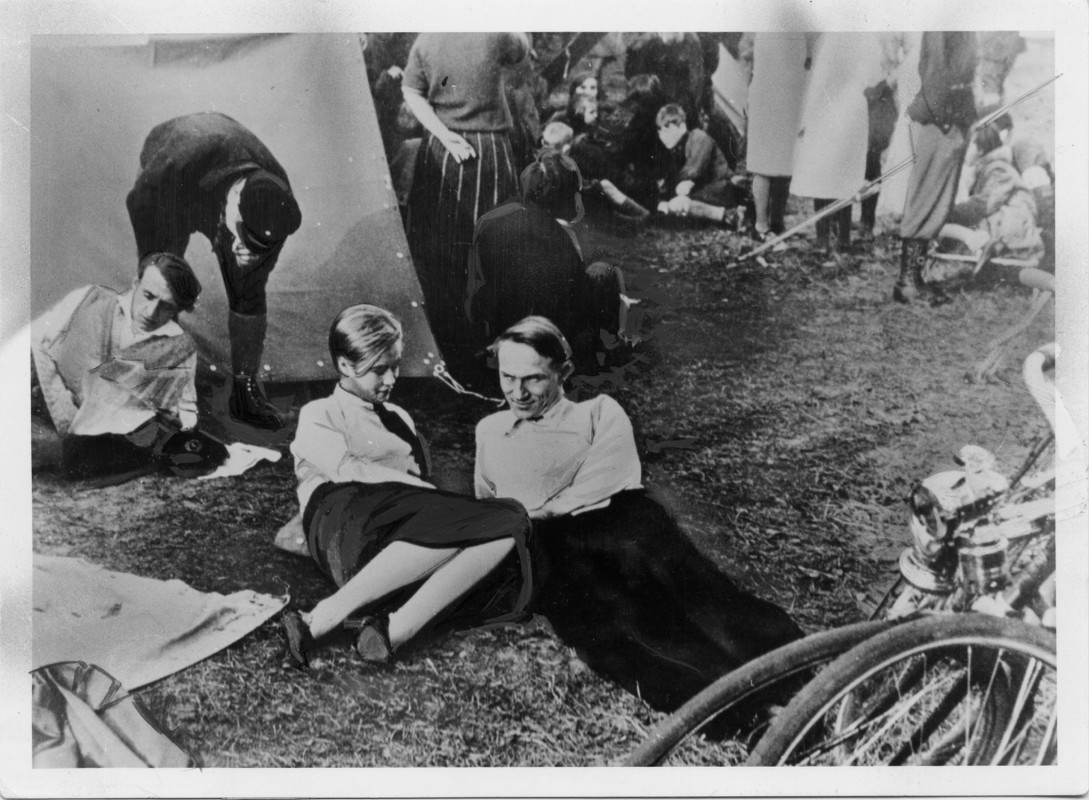The Baby of Mâcon (Peter Greenaway, 1993)
Dec
12
Dīpāvalī
.png)
The miraculous child (Nils Dorando) surrounded by candles. DP: Sacha Vierny.
Candles for Diwali*. Today's and tomorrow's theme are virtually interchangeable.
When an old crone gives birth to a beautiful baby, a young virgin claims the child as hers. With the Immaculately Conceived wonder put on display – to the child's contemporaries, the court of Cosimo de' Medici attending a reenactment of the events, and us film viewers – He protects the false Virgin from losing her chastity and blurs the walls between staging and gospel.
* “Diwali, one of the major religious festivals in Hinduism, Jainism, and Sikhism, lasting for five days from the 13th day of the dark half of the lunar month Ashvina to the second day of the light half of the lunar month Karttika. The corresponding dates in the Gregorian calendar usually fall in late October and November.” (source).
Germany
München-Berlin Wanderung [Walking from Munich to Berlin] (Oskar Fischinger, 1927)
Nov
20
.png)
A bunch of Buben take a moment to pose between troublemaking. DP: Oskar Fischinger.
A journey or road trip*
Four weeks in four minutes, spanning decades in its disruptive form.
* the Bales 2025 Film Challenge for November is, again, not date-based, but follows a sloppy schmaltzy all-American Thanksgiving-y narrative. Trying to make it work my way.
KIPHO [Du musst zur KIPHO] (Julius Pinschewer, 1925)
Sep
25
1925

A very modern dressed woman with a small film camera. Superimposed but suggested she's filming it, a large teddybear – a bear is #Berlin's official mascot – to remind viewers that the Kino und Photoausstellung [“Film and Photo Fair”) takes place in the German capital. DP: Guido Seeber.
Die Republik der Backfische [The Republic of Flappers] (Constantin J. David, 1928)
Sep
20
1928

The Berliner Zeitung (a rag of a paper that's still around to this day) of September 20, 1928. It blares something about America and Graf Zeppelin, the then-new airship. DP: Mutz Greenbaum.
Depending on the language version you watch, you'll see a 1928 newspaper headline dated September 20 (a Thursday), January 10 (a Tuesday), or January 9 (a Monday).
“Du, Wolf, nächsten Sonntag — ?” Menschen am Sonntag [People on Sunday, a Film Without Actors] (Robert Siodmak, Edgar G. Ulmer, Rochus Gliese, Curt Siodmak + Fred Zinnemann, 1929)
Jul
31

Brigitte Borchert savours her Sunday. The workweek is still lightyears away (via). DP: Eugen Schüfftan.
Someone goes to work*
– title card
Berliners rest on Sunday, we still do. People lounge in the many parks, and on the shores of the city's many lakes. And then, it's Monday.
Released in 1929, according to Atlas Film, who restored this important Weimar classic long before Criterion put their grubby hands on it.
* the Bales 2025 Film Challenge for July is, for unknown reasons, mostly not date-related and follows some sort of vacation narrative.
Среда [Sreda / Wednesday / Wednesday 19.7.1961] (Viktor Kosakovskiy, 1979)
Jul
19
Wed

Adult twins who, like director Kosakovskiy, were born on Wednesday 19, 1961. DP: Victor Kossakovsky.
“Ich bin nicht der offizielle Kirchenjesus, ich bin nicht euer Superstar.”Jesus Christus Erlöser [Jesus Christ Saviour] (Peter Geyer, 1971/2008)
May
29
Ascension Day

Kinski speaking to (presumably) journalists as part of promoting his Jesus tour (via)
The birth, life, death or teachings of Jesus on Ascension Day
– Klaus Kinski
It is November 20. The Jesus Christus Erlöser tour brings Klaus Kinski to Berlin's Deutschlandhalle. His monologue, spoken from Jesus the revolutionary's perspective, brings out the hecklers. It's 1971, the post-68 generation is not satisfied with words. It wants to debate, dissect, and devour their Saviour.
“Ich bin meine eigene Frau” (“I am my own woman/wife”)Ich bin meine eigene Frau [I Am My Own Woman] (Rosa von Praunheim, 1992)
May
16
Honor Our LGBT Elders Day

Ichgola Androgyn, Jens Taschner, and Charlotte von Mahlsdorf as Charlotte von Mahlsdorf. DP: Lorenz Haarmann.
An LGBTQ actor, director, or character over 55 for Honor Our LGBT Elders Day (USA)
– Charlotte von Mahlsdorf, in response to her mother's request to settle and get married
The extraordinary life of Charlotte von Mahlsdorf, Berliner, gender bender, Nazi killer (her own father, with a wooden rolling pin, mind you), prisoner, custodian, museum founder, barmaid, Stasi informer (arguably), den mother to the GDR's LGBT+ youngsters, but most of all, her own woman.
“To those who think that all this sounds like science fiction, we point out that yesterday's science fiction is today's fact. The Industrial Revolution has radically altered man's environment and way of life, and it is only to be expected that as technology is increasingly applied to the human body and mind, man himself will be altered as radically as his environment and way of life have been.” Das Netz – Unabomber / LSD / Internet [The Net] (Lutz Dammbeck, 2003)
Apr
27
personal computer mouse – 1981

A mouse in action. Note the stress ball. DPs: James Carman, István Imre & Thomas Plenert.
A computer mouse: the first personal computer mouse debuted on this day in 1981.
– Theodore J. Kaczynski
A Gedankenspiel.
Similar to the way moveable print has accelerated the spread of ideas, the personal computer mouse accelerated the speed of which individualist's ideas can spread. However, like the printing press and unlike the spoken word, the mouse can only point and enhance pre-existing notions, thus neutering any prospect of revolutionary change on an individual level.
In a grotesque snub to nature, the pointing finger has transcended the mouse, detaching our minds from our bodies in one infinite scroll.
“[Kuhle Wampe] gives witness to the true face of a struggling, suffering nation. Made by four thousand unemployed people, it never aims to be a work of art but simply aims to portray […] workers whose youthful energy is going to waste.” Kuhle Wampe oder: Wem gehört die Welt? [Kuhle Wampe or Who Owns the World?] (Slatan Dudow, 1932)
Feb
28
unemployment

The unemployed at Kuhle Wampe, with Hertha Thiele's Anni front and center. People's states vary between still clinging on to better times up to destitute. DP: Günther Krampf.
Someone quits something or is unemployed: the abdication of Pope Benedict XVI in 2013.
– Marcel Carné, via
Kuhle Wampe, Berlin slang that means something like “empty stomach”, is the name of a real-world, improvised encampment for the unemployed at Berlin's Müggelsee. Here we find a family who lost everything after the death of one of them.
This late-Weimar, brechtian film was quickly banned by the German government.